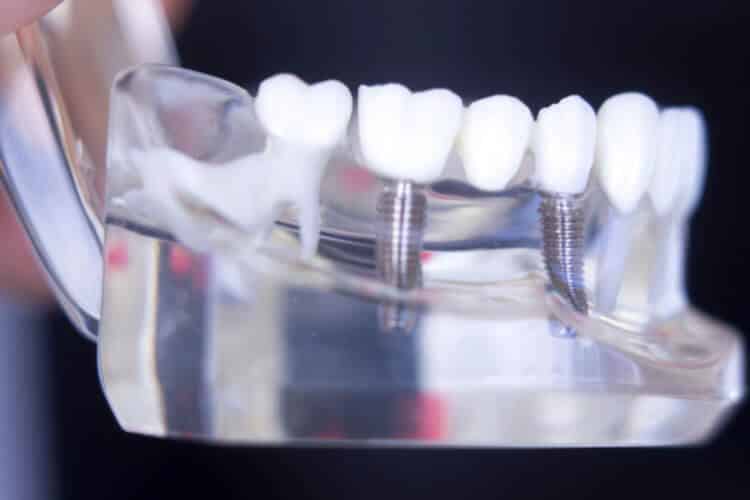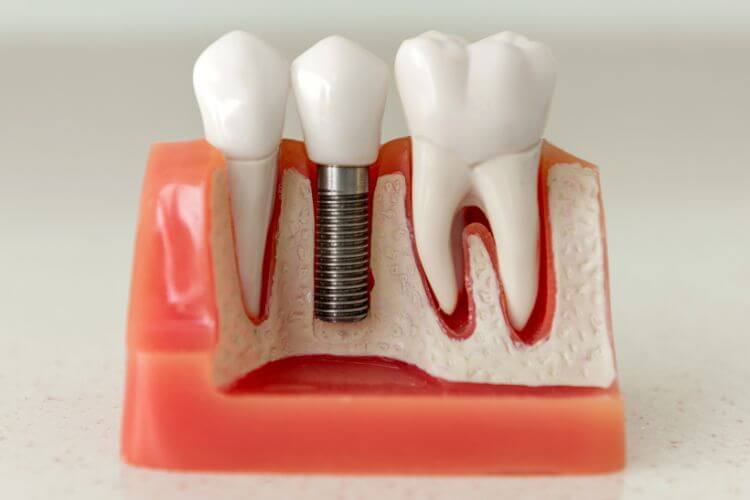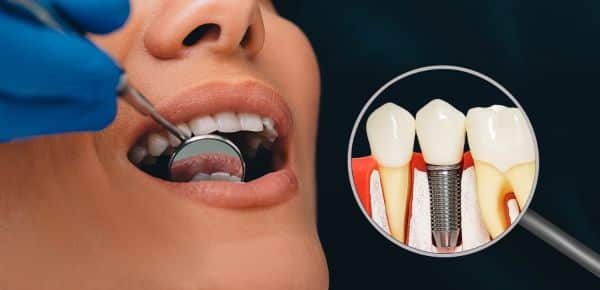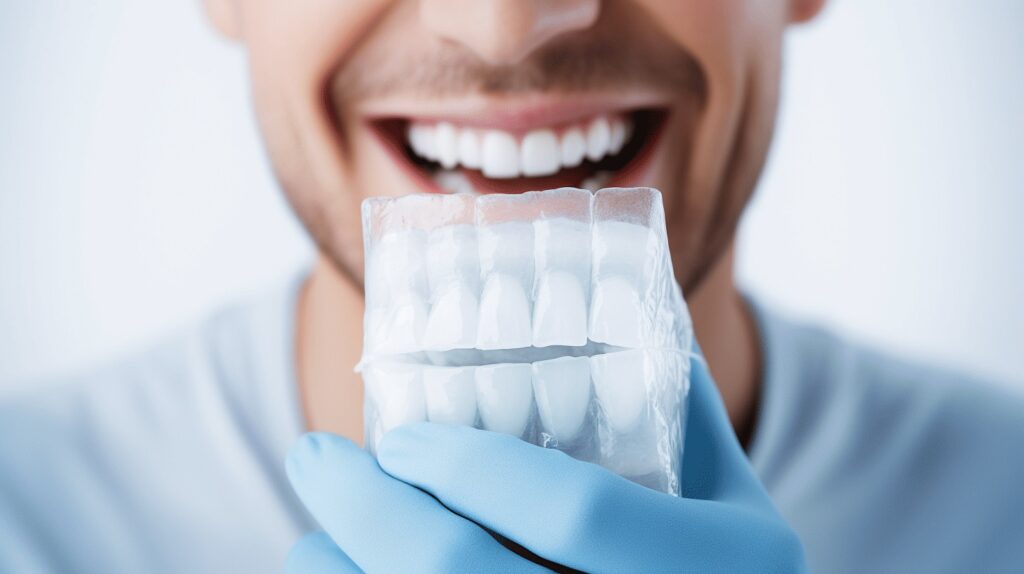Welcome to our freshly brewed article, specially designed for those looking to learn more about dental implants!
Whether you’ve lost a tooth due to an innocent mishap while playing sports, or are dealing with the consequences of progressive gum diseases, continuing life with a missing tooth can be quite a daunting experience. Some may find it difficult to chew, whereas others may feel self-conscious about their smile. Unquestionably, these are aspects that can take a toll on one’s quality of life 🙍♂️.
Enter dental implants, your hero in disguise. Pioneered in the 1960s and impressively refined over the years, dental implants have moved from being a novelty solution to a standard for tooth replacement 🔧. Forget about all the hurdles that come along with missing teeth; dental implants provide you a solution that feels and functions like natural teeth!
As we delve deeper into this article, we’ll uncover the success rates of dental implants, the advantage of technologically advanced procedures, and relevant factors that influence the success of these implants. We will also glance into the compelling future of dental implant technology.
Get cozy and put up your reading glasses 🤓. It’s time to embark on an enlightening journey through the world of dental implants!
Table of Contents
Success Rates of Dental Implants
Are you considering dental implants? If so, you’re about to make a wise investment in your smile! 🦷 Undeniably, the success rate of this procedure is a critical factor you’d want to know about. As dental professionals, we can vouch for the fact that dental implants have proven to be a very reliable and successful tooth replacement option. Here, let’s explore the figures that back our claim!
Overall Success Rate
The success rate of dental implants is generally high. On average, it lies between 90% and 95% over a 10-year period. This means that a vast majority of people who have dental implants end up with a rejuvenated, healthy smile! Now isn’t that food for thought? 😁
Success Rate by Jaw Location
But hey, did you know that the success rates may vary slightly depending on the location of the implant in the mouth? Let’s explain. ✔️
- Lower jaw dental implants have a success rate of approximately 95%. They tend to have a better prognosis because the bone in the lower jaw is typically denser, providing better support for the implant.
- Upper jaw dental implants have a slighter lower success rate at approximately 90%. Bone density in the upper jaw is generally lower, which may make the implant procedure slightly more complex.
Despite this slight variation, dental implants have superb success rates across both jaws. So, whether you’re missing teeth on the top or bottom, dental implants are a robust solution!
Cumulative Survival Rates
We also have an encouraging statistic related to the long-term reliability of dental implants. The 10-year cumulative survival rate for dental implants is an impressive 96.8%. In simpler terms, nearly 97 out of 100 dental implants are still going strong 10 years post-procedure! 🎉
From the exceptional overall success rate to the impressive cumulative survival rates, it’s clear dental implants are a fantastic choice for restoration of dental health. Understanding these rates is vital to set realistic expectations for the long-term performance of dental implants. For more information, you can always visit our page on the Success Rate of Dental Implants at any time. Remember, a smile is always in fashion. Let’s keep yours shining brightly! 😊💖
Technological Advances in Dental Implant Procedures
Have you ever wondered how dental implant procedures have advanced through technology? The answer is – greatly! 🚀
There has been a remarkable revolution in dental surgery over the past few years, thanks to the advances in technology. These improvements have made dental implant procedures more efficient, safer, and comfortable. Want to discover more? Let’s dive in!💡
Precision through Digital Imaging
Gone are the days of uncertainty and guesswork in dental procedures. With the advent of digital imaging and computer-assisted technology, every step in a dental implant procedure can be done with amazing accuracy and precision.👌 It’s like enabling the dentist to have a sneak peek into your oral cavity and treatment planning like never before!
Enhancements through 3D Printing
3D Technology is no longer restricted to just blockbuster movies; it has found its way into dental labs. By offering precise planning capabilities, 3D printing technology allows the creation of exact replicas of your jaw, enabling the dentist to study the intricacies of your oral cavity in detail. No surprises anymore; your dentist knows exactly where to place the implants securely.😉
Innovations with Antibacterial Coatings
Leave behind all fear of infection. Technology has been a helping hand to dentists in the form of antibacterial coatings. These special coatings, when applied to the implants, can help reduce the risk of post-operative complications.✔️ So, you can now go in for your dental implants with increased confidence!
Material Advancements with Zirconia
Remember the bling of metal implants? They slowly drifted into oblivion with the advent of Zirconia, a sophisticated and biocompatible material. Known for its exceptional stability, aesthetics and less allergic reactions, Zirconia has quickly become the preferred material in dental implantology.✨
Nanotechnology for Implant Surface
Talk about size, and we’ve got nanotech taking over! This technology is being explored for enhancing the surface of dental implants. The idea is to make the surface structure at the microscopic level equivalent to that of natural teeth. This could lead to excellent integration and longevity of the implants.🔬
Digitally-guided Surgery
Imagine a procedure being executed exactly as planned? Digital-guided surgeries make this a reality. This technology enables extremely precise placement of every implant.
As you have seen, technology has made tremendous strides in dental implant procedures. With a bouquet of advantages, dental implant surgeries are now definitely less daunting than before! To know more about these advancements, visit our page on the Latest Innovations in Dental Implants. Trust us, it’s fascinating! 🔎
Factors Influencing the Success of Dental Implants
In our quest for a perfect smile, dental implants often play an essential role. However, numerous factors can influence the success of these procedures. To better understand, let’s delve into the specifics, uncovering the secrets behind highly effective dental implants. 🧐🦷
Effect of Smoking
As dental professionals, we’ve always highlighted the detrimental effects of smoking on oral health. When it comes to dental implants, the tune does not change much. The Risks of Smoking and Dental Implants are indeed substantial. Not only does smoking lower the success rate of implants, but it can also lead to complications such as gum disease and bone loss. The heat from cigarette smoke can cause damage to implant tissues, slow healing, and ultimately jeopardize the total fixture success.
Let’s consider the principal issues related to smoking:
- Interference with gum and mouth healing
- Lower blood flow to the mouth
- Higher potential for infections
- Greater implants failure rate
Temporarily quitting isn’t enough though; the harmful impacts go beyond the initial recovery period. Long-term success rates significantly drop in current and former smokers.🚭
Influence of Bone Issues
Adequate bone density and quality are paramount for the success of dental implants. Insufficient bone support may not anchor the implants securely, resulting in loose fixtures and ultimately failure. Conditions such as osteoporosis and previous bone fractures can affect implant placement and longevity.
Key points include:
- Shape and size of bone structure impact implant position
- Bone density affects implant stability
- Existing bone disorders may interfere with implant integration
Impact of Surgery Staging
One significant influence on the success rate of dental implants is the specific method employed. Dental implants can be placed using either a one-stage or two-stage surgery approach:
- One-stage procedures involve positioning an implant and a healing abutment in a single visit.
- Two-stage surgeries entail placing the implant first, followed by a rest period, and then adding the abutment later.
Each method has its own set of benefits and potential drawbacks. Your dental surgeon will recommend which approach is ideally suited, based on the individual’s oral health condition.
Importance of Diet and Hygiene
Your lifestyle habits, specifically diet and hygiene practices, can impact the effectiveness and longevity of dental implants.
Balanced nutrition plays a critical role, with vitamins A and C being exceptionally important for gum health. Similarly, calcium and vitamin D have implications for maintaining strong bone support for your implants.
On the flip side, poor oral hygiene can lead to complications, like infections and gum diseases, affecting implant stability. Therefore, regular brushing, flossing, and routine dental check-ups are crucial.
In summary, while dental implants can significantly enhance your smile, several factors can impact their ultimate success. From lifestyle choices like smoking to biological factors such as bone health, every aspect plays a significant role. Striving for a healthier lifestyle and maintaining optimal oral hygiene can influence implant longevity and effectiveness significantly. So keep smiling, and take care of those pearly whites! 😁🦷✔️
The Future of Dental Implant Technology
The realm of dental health is entering a new era of possibility and excitement, thanks to groundbreaking advancements in implant technology. From smart dental implants to the use of UV light, the Future of Dental Implants is illuminated with ingenious innovations. Join us as we delve into these promising developments. 🚀
Promising Developments in Smart Dental Implants
Today, smart dental implants are emerging as a revolutionary innovation in dental implant technology. Beyond the traditional purpose of substituting missing teeth, these high-tech implants are capable of diagnosing and treating a myriad of oral health issues. By monitoring the oral condition in real time, they can detect early-stage decay and infections, potentially lessening the need for repetitive dental visits. How cool is that? 🆒
Digital Monitoring Systems
Another exciting innovation on the horizon is the advent of digital monitoring systems. Not just offering a perfect fit, these state-of-the-art systems provide dentists with real-time data about the dental implant’s functioning, allowing them to provide personalised, up-to-the-minute care. This, in turn, can significantly enhance the long-term stability of dental implants, improving patients’ overall oral health. 🎯
Advancements in Coating Technologies
Also ushering in a new chapter for dental implants are recent advancements in coating technologies. By improving the integration and stability of implants, these new coatings can drastically cut down the healing time post dental implant surgery. What does that mean for you? Less discomfort, and a quicker return to your regular, cheerful self! 😀
The Use of UV Light
Last but not least, let’s shine some light 🌞 on a recent breakthrough in dental implant technology – the use of UV Light. By eliminating bacteria and promoting faster healing, UV light poses an exciting solution to one of the biggest challenges in dental implantology: the prevention of infection.
As we venture forward into the future of dental implant technology, the possibilities for improvement continue to broaden. With these ongoing advancements, we’re confident that the future of oral health is brighter and healthier. Now, isn’t that something worth smiling about? 😊
Conclusion
When it comes to replacing lost teeth, dental implants represent the vanguard of modern dentistry technology. Not only do they restore your smile, but they also preserve the structural integrity of your jaw. Implants are a long-term solution, not a band-aid. Their high success rate is a testament to their efficacy and the strides made in dental technology.
At Wilshire Smile Studio, we have harnessed these advancements to provide our patients with optimal results. Whether it’s through imaging precision, 3D printing enhancements, or the use of smart dental implants, we are dedicated to meeting your individual oral health needs.
As we maneuver into the future, we remain enthusiastic about the developments in dental technology. The promising prospects of digital monitoring systems and advancements in coating technologies mean we can offer better, more personalised care for our patients. And this is just the tip of the iceberg. Imagine what we could achieve with the incorporation of UV light in our procedures. The possibilities are boundless!
Navigating the world of dental implants can be a daunting process, especially when you consider the speed at which technology is racing ahead. Trust us to guide you every step of the way. We at Wilshire Smile Studio take pride in our dedication to our patients, offering exceptional dental care in a comfortable atmosphere.
Choosing dental implants is a decision that will greatly impact the health and aesthetics of your smile. We want to restore your confidence and we’re here to provide you that perfect smile you’ve always dreamed of.
Let’s journey into the future of dental health together.
Book your free consultation with us online or call (323) DENTIST (323-336-8478) today.
Remember, a healthy smile is always in style! 👍
Frequently Asked Questions
1. What are dental implants?
Dental implants are surgically placed artificial tooth roots made of titanium that serve as a strong foundation for replacement teeth or dental bridges.
2. Are dental implants the best solution for missing teeth?
Yes, dental implants are considered the best and most durable solution for missing teeth. They offer a natural look and feel, function like real teeth, and can last a lifetime with proper care.
3. How long does the dental implant procedure take?
The duration of the dental implant procedure depends on various factors, including the number of implants needed and the patient’s oral health condition. On average, it can take anywhere from several months to a year to complete the entire process.
4. Are dental implants suitable for everyone?
While dental implants are a suitable option for most individuals with missing teeth, certain factors such as bone density, overall health, and lifestyle habits may affect the eligibility. It is best to consult with a dental professional to determine if dental implants are the right choice for you.
5. Are dental implants painful?
During the dental implant procedure, local anesthesia is used to numb the area, so you should not feel any pain. After the procedure, there may be some discomfort or swelling, which can be managed with pain medications prescribed by your dentist.









